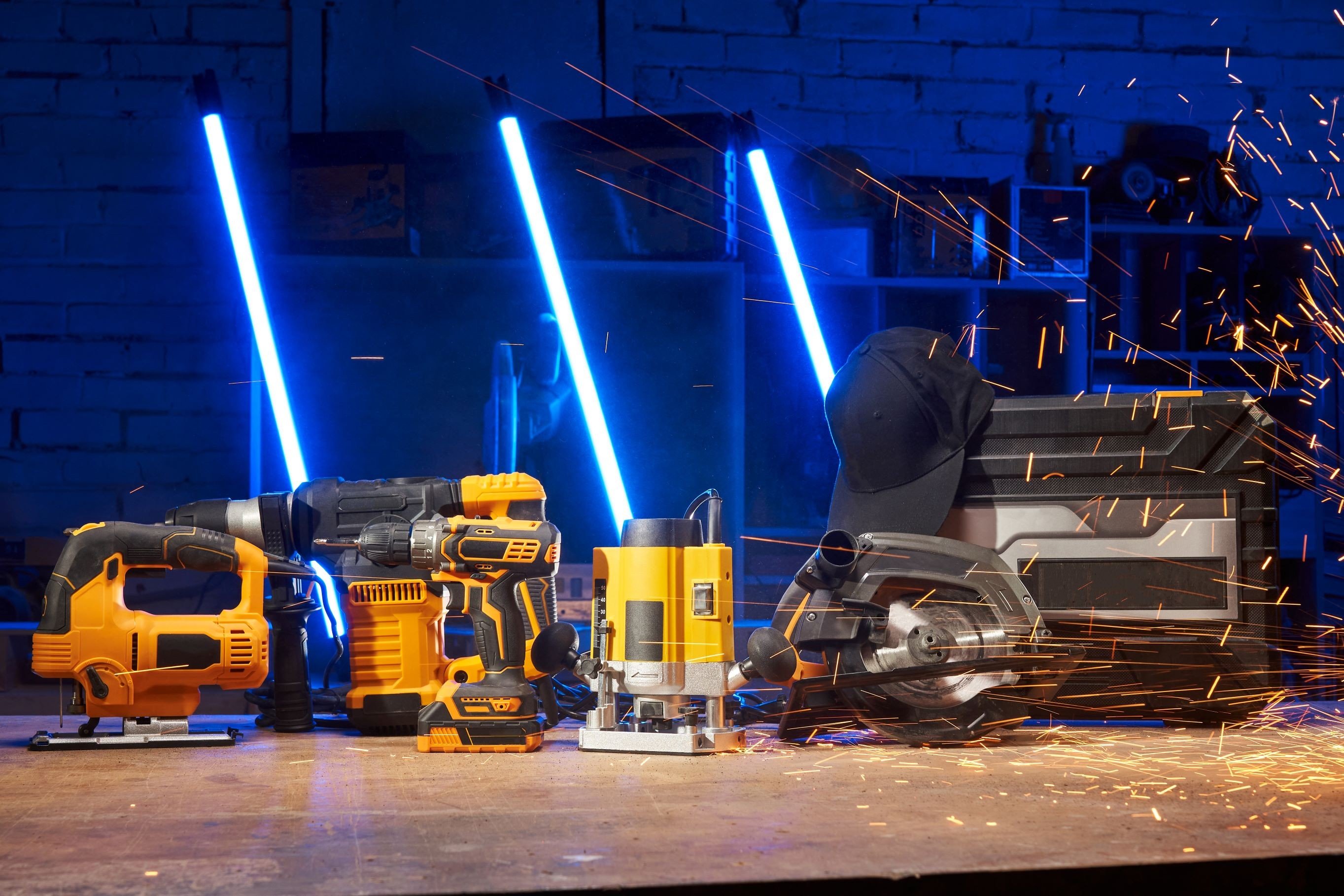4 Dirty Little Details About Power Tools And The Power Tools Industry
The Essential Guide to Power Tools: Unlocking Potential for DIY Projects
Power tools have actually transformed the way both professionals and DIY enthusiasts approach jobs varying from woodworking to metalworking and beyond. With a huge range of alternatives available on the market, it's vital to understand the different kinds of power tools, their applications, and how to use them securely and effectively. This comprehensive guide will provide important insights into the world of power tools, assisting you pick the right ones for your jobs while guaranteeing security and efficiency.
Types of Power Tools
Power tools can be broadly categorized into 2 categories: corded and cordless. Each classification has its advantages and disadvantages, making them appropriate for different applications. Below is a detailed list of common power tools you may consider.
Corded Power Tools
Corded tools are powered through an electrical outlet, providing constant power without the requirement for battery management. Below are some typical corded power tools:
Drills
- Application: Drilling holes and driving screws.
- Features: Typically have higher torque and continuous power.
Saws
- Types: Circular saw, jigsaw, band saw.
- Application: Cutting wood, metal, and other products.
- Features: Greater cutting power and accuracy.
Grinders
- Application: Grinding, sharpening, and polishing.
- Features: High RPM (revolutions per minute) for effective work.
Planers
- Application: Smoothing wood surface areas.
- Features: Adjustable depth for various thicknesses.
Cordless Power Tools
Cordless tools operate on rechargeable batteries, providing convenience and mobility. Here are several key cordless tools:
Cordless Drills
- Application: Drilling and screwing without the hassle of cables.
- Features: Lightweight and easy to maneuver.
Reciprocating Saws
- Application: Demolition and cutting in tight spaces.
- Functions: Versatile blade choices for various materials.
Impact Drivers
- Application: Fastening screws and nuts, providing high torque.
- Functions: Compact and designed for durable use.
Cordless Nailers
- Application: Driving nails quickly without manual effort.
- Features: Ideal for framing, roofing, and completing tasks.
Security Tips for Using Power Tools
Using power tools comes with fundamental dangers. It is vital to follow security practices to reduce the possibility of mishaps. Here are some essential security suggestions:
Wear Personal Protective Equipment (PPE):
- Safety glasses to protect eyes.
- Hearing defense when required.
- Gloves suitable for the task at hand.
Check out the Manual:
Familiarize yourself with the tool's features, abilities, and restrictions.Examine Tools Regularly:
Check for any indications of wear or damage before use.Operate in a Clean Area:
Keep the work space organized to prevent trip hazards.Use the Right Tool for the Job:
Ensure the tool is created for your particular project to prevent misuse.Unplug When Changing Accessories:
Always disconnect tools from power sources when changing bits or blades to prevent unintentional activation.
Best Practices for Maintaining Your Power Tools
Correct upkeep prolongs the life of power tools, guaranteeing they perform effectively when required. Below are some best practices:
Clean After Each Use:
Remove dust, particles, and any other pollutants.Store Properly:
Keep tools in a dry, secure location, ideally with protective sheathing.Inspect and Replace Batteries:
Regularly check rechargeable batteries and change them as needed.Sharpen Blades:
Keep cutting edges sharp for better efficiency and safety.Schedule Professional Servicing:
Occasionally get your tools serviced by a professional, specifically if they are used frequently.
Regularly Asked Questions (FAQs)
1. What are the primary distinctions in between corded and cordless power tools?
Corded tools offer constant power and are typically more powerful, making them perfect for heavy-duty tasks. Cordless tools, on the other hand, supply higher mobility and benefit.
2. How do I select the right power tool for my project?
Consider the kind of work, needed power, and whether mobility is important. Checking out reviews and getting suggestions can likewise assist guarantee you pick the proper tool.
3. How often should I carry out upkeep on my power tools?
It depends upon usage frequency. For often utilized tools, an extensive cleansing and evaluation after every use is advisable. Less regularly utilized tools can be checked and preserved quarterly.
4. Exist battery types I should prefer for cordless tools?
Lithium-ion batteries are generally preferred for their lighter weight and longer life compared to nickel-cadmium batteries.
5. Is it safe to utilize power tools in damp conditions?
No, operating power tools in wet conditions postures significant threats of electric shock. Always guarantee your work space is dry.
Power tools have actually ended up being vital in numerous applications, from enthusiast woodworking to professional building and construction. Understanding the types of tools readily available, sticking to security procedures, and maintaining them effectively makes sure that these tools can be utilized to their full potential. As technology advances, power tools continue to progress, making it essential for users to remain informed about the current developments and best practices. When used responsibly, Click On this website can change any task into a work of art.
Table: Overview of Common Power Tools
Tool Type
Application
Source of power
Secret Features
Corded Drill
Drilling/Screwing
Corded
Continuous power, high torque
Circular Saw
Cutting
Corded
Precision cutting, different sizes
Cordless Drill
Drilling/Screwing
Cordless
Lightweight, portable
Reciprocating Saw
Demolition/Cutting
Cordless
Versatile for different materials
Impact Driver
Attaching
Cordless
High torque, compact design
Grinder
Grinding/Sharpening
Corded
High RPM for effective work
Cordless Nailer
Driving Nails
Cordless
Quick attaching, no handbook effort
By empowering people with the knowledge of choosing and responsibly utilizing power tools, this guide seeks to boost performance, security, and overall complete satisfaction in DIY and professional jobs alike.
